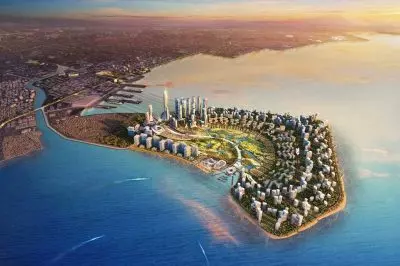 Online gambling companies that operate in the Philippines will be forced to face stricter anti-money laundering measures as part of the country’s efforts to clear its name and stop being grey-listed by global financial regulatory bodies.
Online gambling companies that operate in the Philippines will be forced to face stricter anti-money laundering measures as part of the country’s efforts to clear its name and stop being grey-listed by global financial regulatory bodies.
Recently, the Philippine lawmakers gave the nod to a revised version of the Anti-Money Laundering Act (AMLA) in which so-called POGOs (Philippines Offshore Gaming Operators) and their service providers are included under the “covered persons” definition. The aforementioned piece of legislation was first approved in 2001 and then became subject to amendment in 2017 in order to include both land-based and online casino operators in the country, as well as the junket operator partners of local casinos.
However, the amended bill faced significant criticism, as it did not cover the Philippines Offshore Gaming Operators’ service providers. In March 2020, the Anti-Money Laundering Council (AMLC) of the country flagged the bill as an area of concern and also raised a red flag over the alleged lack of commitment of POGOs to remain in line with the KYC (know-your-customer) rules.
Under the amendments, the Anti-Money Laundering Council is empowered to issue special writs to gambling companies and also to initiate search and seizure in case operators do not want to cooperate. Tax crimes have also been classified as predicate offenses to money laundering as part of the changes.
FATF Previously Included the Philippines on Its Grey List
 In order for the revision of the AMLA to take effect, the piece of legislation still needs to be signed by Philippine President Rodrigo Duterte. Mr. Duterte is expected to lay his signature under the amended bill as part of his efforts to prevent the Financial Action Task Force (FATF) from proceeding with its threat to include the country in its “grey list” of jurisdictions that are considered untrustworthy and insufficiently committed to tackling money laundering crimes.
In order for the revision of the AMLA to take effect, the piece of legislation still needs to be signed by Philippine President Rodrigo Duterte. Mr. Duterte is expected to lay his signature under the amended bill as part of his efforts to prevent the Financial Action Task Force (FATF) from proceeding with its threat to include the country in its “grey list” of jurisdictions that are considered untrustworthy and insufficiently committed to tackling money laundering crimes.
The Philippines were put on the Financial Action Task Force’s “grey list” in 2000. The country managed to exit that list in 2005, and then, in 2017, Philippine lawmakers made the AMLA amendments following another threat from the Task Force that it would bring back the country in the list for making an exception for gambling companies from the coverage of the previous update of the Anti-Money Laundering Act in 2013.
According to reports, Philippine President Rodrigo Duterte also fears that the country would be returned to the “grey list”. Such a move would have a detrimental effect on the country’s economy that has already been struggling because of the coronavirus pandemic.
The latest deadline imposed by the FATF for the country to make sure its anti-money laundering rules were revised was supposed to be October 2020. However, the negative consequences of the coronavirus pandemic saw the Task Force extend that deadline to February 1st, 2020. Reportedly, the FATF is set to make its final decision whether the anti-money laundering rules unveiled by the Philippines are sufficient in June 2021.